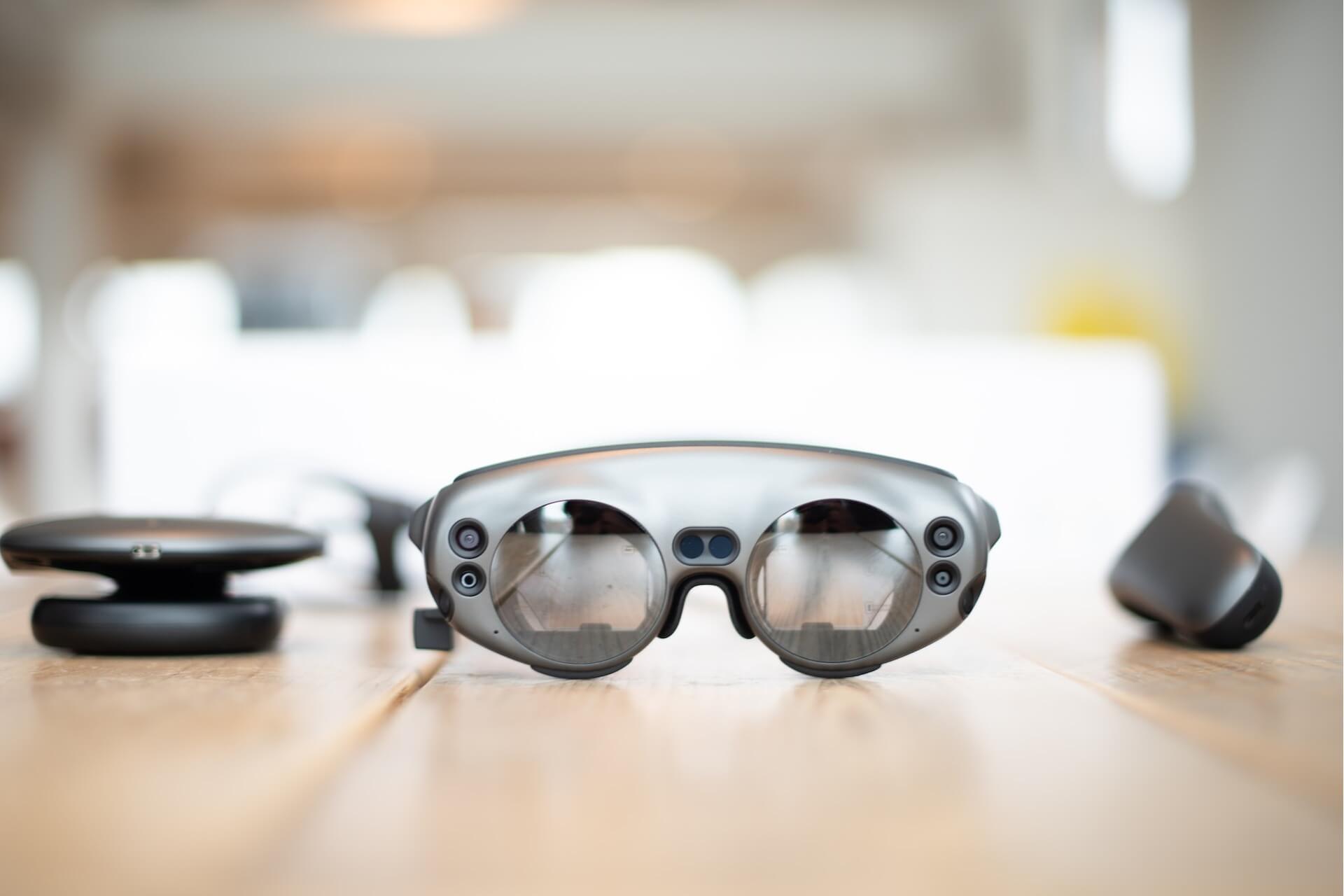
As an Amazon Associate, Modded gets commissions for purchases made through links in this post.
It’s 2035. Your VR headset is on and you’ve just started playing a mission-based futuristic game. You meet an NPC, but instead of repeating the same one-liner you can have a conversation with them, and they direct you to your next destination. You meet another, who tells you to ‘hold on a minute, I’ll be with you’ then speaks to another non-playable character (NPC) before starting their conversation with you. Each of these characters has a personality, it feels like bumping into a stranger on A Tuesday afternoon – except you’re in the game and have your Oculus goggles on of course. So how does that have anything to do with VR and AI?
Well, it’s the future. With machine learning and new developments in AI, you could see natural dialogue and hyper-realistic worlds soon for a VR game experience like no other.
If you’re well versed in VR, you know there are already games like Beat Saber where you slash through beats to make a song or Fallout VR where you need to navigate a post-apocalyptic wasteland for survival. If you’re new to VR, buckle up and get excited for all things AI VR gaming.
What is VR?
Virtual reality is like stepping into a whole new world, without having to enter a car or a spaceship. It’s an immersive experience that imitates the real world or simulates imaginary worlds for video games, virtual events or virtual tours. Companies use VR for it’s different benefits:
- Enhance customer experience and engagement– like when interior designers show people how their house will look once they have put in all the furniture and accessories
- Create immersive experiences– like a racing game on Oculus with haptic touch vibrations when you bump into another car
- Provide unique interactions with products and services like interactive models of LED light facemasks or a virtual tour of a restaurant before visiting.

What is AI?
AI consists of a set of tools or systems that can perform tasks that would usually require human intelligence and logic. Tasks like decision-making, natural language processing and learning and recalling new information. You’ve seen it in chatbots, predictive analytics and recommendation systems like suggested YouTube videos with your interest.
People use AI because it makes things easier:
- To automate repetitive tasks like data entry or customer support.
- Improve efficiency like creating an outline for an article or essay.
- Enhance decision-making by providing more information.
Where VR and AI connect
In health care, AI virtual assistants can help people with diagnosis and information. In Dubai, the Health Ministry has already started using a metaverse healthcare portal to enhance government and private healthcare services. People can receive medical attention, advice and other services from real staff and virtual AI chatbots. The technology they use also has thermal imaging, which can detect diabetic foot inflammation that needs diagnosis or monitor recent surgical sites for risks of infection.

Fashion Technology companies like Seamm has created an AR reality try-on feature with virtual and real-world clothes. You can plan outfits by seeing how those jeans would look with that jacket and make an informed decision before buying.
You may also have seen the IKEA feature where you can put virtual furniture and electronics from a specific location into your home to test it out and see if it fits.
VR AI Future Trends for Gaming
For gamers everywhere, AI may just be the missing thing when it comes to the ultimate immersive experience. Here’s how:
Making the Game-Creation Process Better
And AI assists with creating complex content to make the game more dynamic. Of course, you cannot replace the human touch of storytelling but think of the kind of variations of worlds that AI could help produce. This makes for personalized games like Detroit: Become Human, where NPC dialogue is based on player choice and every person who plays the game could have a completely unique experience because of their gaming style or choices.
Another great example that points to the future of gaming is No Man’s Sky by Hello Games. The universe has 16 quintillion AI-generated planets with different terrains, unique creatures and world-specific resources. This means every single person in the world today — out of 7.88 Billion– could visit two different planets from everyone else.
Enhanced Predictive Capability
In the same way you would read someone’s body language or get to know them in a relationship, AI’s predictive capabilities can analyze your preferences, action and general behavior to generate unique content fpr an engaging experience.
A Level Up for Characters and Customization
Sims level customization with a unique appearance, behavior and psychological features. You’ll also see more interactive and challenging antagonists who adapt to your playing style as well as NPCs with lives of their own.
Game Testing
When it comes to game-testing, the possibilities are endless. AI can crawl around VR spaces and look for inconsistencies and potential glitches to ensure the game runs smoothly. Ai can also analyze human feedback to optimize game design and fine-tune mechanics, motion tracking and immersion factors like spatial audio.
Movement Tracking
AI is getting gamers one step to closer to feeling like they are ‘inside’ the game. But full-body tracking AI can track movements for better interactions with virtual objects. With this also comes pathfinding algorithm technology which gives the game the ability to find the best path for your avatar when you’re on a mission in a virtual world.
Voice Recognition
Remember the NPC who told you to wait in the imaginary VR World in the first few lines of this article? AI could make natural dialogue and conversation possible through Intelligence models like Whisper that can create games that respond to your voice input as you play.

AI + VR = Super Immersive and Engaging Gameplay
From healthcare to gaming, AI combined with VR has a bright future with super engaging and hyper-realistic immersive gameplay. And with VR tech companies looking to reduce the size of VR goggles and headgear, who knows? AI could spearhead the technology that will bring spectacle-sized Oculus headsets and more streamlined gameplay






